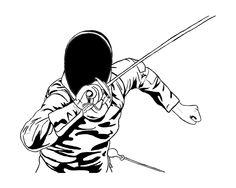There is a great deal of battle in fencing.
By “battle”, what I mean is that to be effective, fencers must think about constantly about the tug of war that is happening between them and their opponent. This kind of thinking starts before the bout even begins, and in fact extends after the match is over. Just as a general works to position his troops to his best advantage in battle, so too must a fencer learn to exploit every possible opportunity on the strip.
Keep in mind that chess is a game of war and conquest as well. Just as when you’re in a chess match you’ve got to be thinking one or two or five steps ahead, so too in the physical physical chess that is fencing you’ve got to be able to think one or two or five steps ahead.
Here’s 1 critical way you can take advantage of tactical fencing.
Whatever you’re doing isn’t going to work for long. The moment you think that you’ve figured your opponent out once and for all is the moment that you’ve lost the match for certain. Tactical fencing involves constant adaptation to what your opponent is doing, because rest assured that they will change. Even novice fencers change tactics over the course of a match due to fatigue, stress, or blind luck.
Initial intelligence gathering can begin before your match as you watch opponents during the tournament. You never know who you’ll meet on the strip along the way, but it’s always a good idea to watch fencing bouts when you aren’t fencing yourself. As with anything, there’s balance to be had here. Observation can give you powerful insight. Also keep in mind that fencing is a play between two opponents – who a fencer is against affects how they fence. Your opponent will adapt, so don’t be surprised when they use slightly different tactics against you than they did against others.
Once your bout with an opponent begins, you can do some initial intelligence gathering in the beginning of the bout, perhaps even sacrificing a few touches to get a good grasp of how to face them. Here are initial steps to gathering intelligence during a fencing bout.
www.academyoffencingmasters.com
|
|
